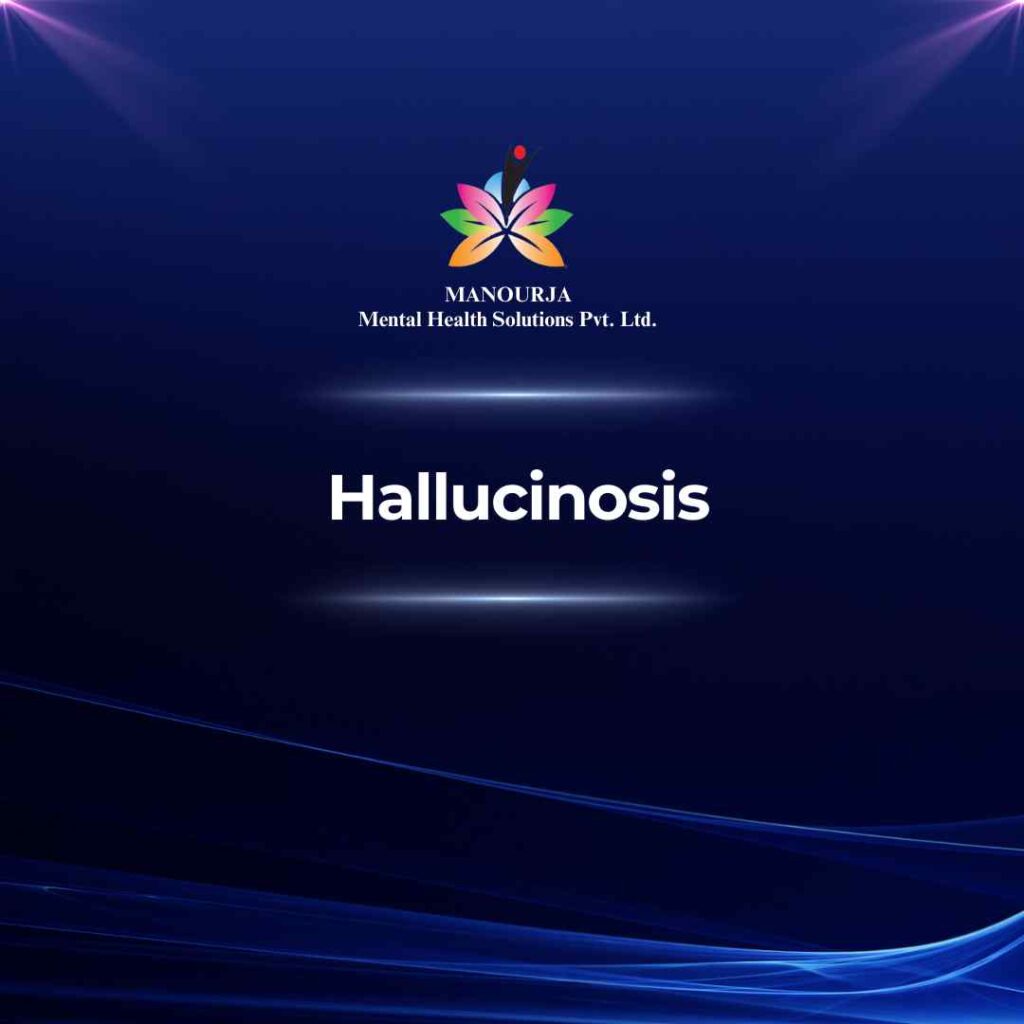Hallucinosis

Hallucinosis refers to a condition characterized by persistent and intense hallucinations that occur without full loss of consciousness. Here’s an overview:
In mental health, hallucinosis refers to:
- Persistent Hallucinations: Individuals experience vivid sensory perceptions in any sensory modality (auditory, visual, tactile, olfactory, or gustatory) that are not based on real external stimuli.
- Awareness of Hallucinations: Unlike some hallucinations in psychotic disorders where individuals may not recognize them as unreal (e.g., schizophrenia), in hallucinosis, individuals are generally aware that their hallucinations are not real but experience them as vivid and compelling.
Hallucinosis as a Sign and Symptom of Mental Illness
Hallucinosis can occur in several mental health conditions, including:
- Alcohol-Related Disorders: Chronic alcohol abuse can lead to alcoholic hallucinosis, where individuals experience auditory hallucinations typically of accusatory or threatening nature.
- Substance-Induced Psychotic Disorder: Hallucinosis can occur as a result of substance abuse or withdrawal, such as hallucinogen intoxication or withdrawal from drugs like benzodiazepines.
- Organic Brain Disorders: Conditions affecting the brain, such as dementia or delirium, can lead to hallucinosis due to neurochemical imbalances or structural brain changes.
Symptoms of Hallucinosis
- Sensory Modalities: Hallucinations can involve any of the senses, although auditory hallucinations are most common in hallucinosis.
- Perseveration: Hallucinations may persist for extended periods and can be distressing or disruptive to daily life.
- Insight: Individuals typically have insight into the hallucinatory nature of their experiences, distinguishing them from delusions where the belief in their reality is maintained despite evidence to the contrary.
Managing Hallucinosis
- Treatment of Underlying Cause: Addressing the primary condition causing hallucinosis, such as alcohol cessation or treating underlying medical conditions.
- Medication: In some cases, antipsychotic medications may be used to manage severe hallucinations or associated symptoms.
- Supportive Therapy: Therapy can help individuals cope with and manage the distress caused by hallucinations, improving overall quality of life.
Conclusion
Hallucinosis is characterized by persistent and vivid hallucinations occurring in the absence of full loss of consciousness. It can arise in various mental health and medical conditions, highlighting the importance of accurate diagnosis and tailored treatment approaches to address both the underlying cause and associated symptoms effectively.
At MANOURJA, we believe in the transformative power of counseling. Our experienced therapists offer a safe and supportive space where you can explore your thoughts, emotions, and challenges. Through personalized counselling sessions, we’ll work together to develop coping strategies, build resilience, and achieve lasting positive change. Discover the path to a healthier, happier you with MANOURJA counselling services.
MANOURJA Rehabilitation Services
At MANOURJA, we’re dedicated to helping you in rebuild your life, after difficult times. Our rehabilitation services focus on understanding what you need to move forward, whether you’re recovering from addiction, trauma, or any psychological – social challenges. We create personalized plans, that are all about helping you, regain your strength and find hope again. With a caring team by your side, you’ll have the support to make real progress and take steps toward a brighter, healthier future.
